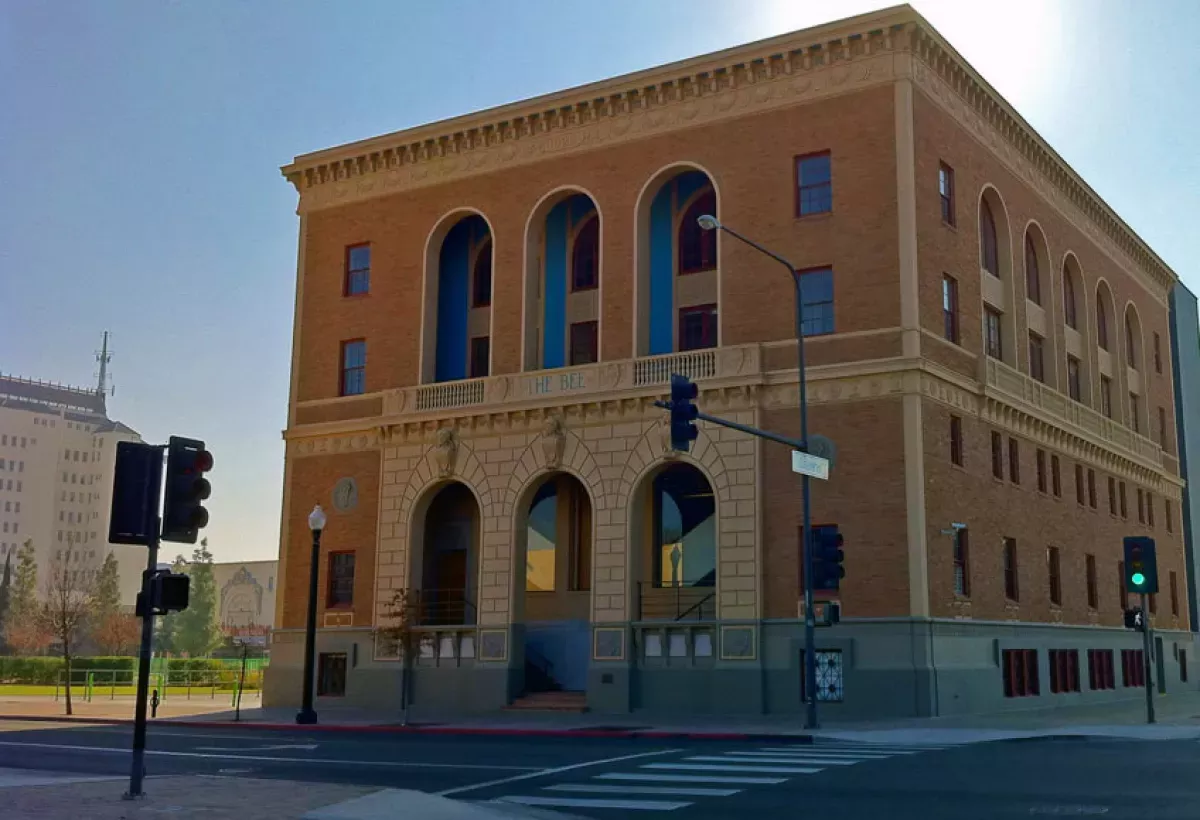Fresno, located in California's San Joaquin Valley, is a major city and the county seat of Fresno County. As the largest city in the Central Valley, it spans approximately 115 square miles. According to the 2020 Census, Fresno's population reached 542,107, ranking it as California's fifth-largest city, the most populous inland city in the state, and the 34th-largest in the United States.
1901: Change in Fresno's Government System
Fresno's government transitioned from a ward system to a different system in 1901. Prior to this change, a board of trustees governed Fresno, with the President of the Board of Trustees serving as the de facto mayor without holding the official title.
1901: End of Horse-Drawn Streetcars
The Fresno City Railway Company, later known as the Fresno Traction Company, discontinued its horse-drawn streetcar service in 1901 after operating since 1887.
1903: Electric Streetcars Debut
Fresno saw the introduction of electric streetcars in 1903.
1903: San Joaquin Light and Power Corporation
In 1903, the struggling San Joaquin Power Company was renamed the San Joaquin Light and Power Corporation, incorporating the Fresno City Water Company and Fresno City Railway.
July 8, 1905: Record High Temperature
Fresno experienced its highest recorded temperature on July 8, 1905, reaching 115 °F (46.1 °C).
1909: Temple Beth Israel Founded
Fresno's first and oldest synagogue, Temple Beth Israel, was founded in 1909.
January 6, 1913: Record Low Temperature
The coldest temperature ever recorded in Fresno was 17 °F (−8 °C) on January 6, 1913.
1916: Fresno Normal School Relocates
The Fresno Normal School, later renamed California State University at Fresno, relocated to the current Fresno City College site, half a mile north of the Tower District, in 1916.
1920: Armenian Population in Fresno
Armenians constituted 9% of Fresno's population in 1920, with 4,000 Armenian residents residing in the city.
1931: Fresno Traction Company
By 1931, the Fresno City Railway became known as the Fresno Traction Company, operating 47 streetcars across 49 miles of track.
July 1933: Start of Dry Period
A period of exceptionally low rainfall commenced in Fresno in July 1933.
June 1934: End of Dry Period
The period of very low rainfall in Fresno ended in June 1934.
1937: Fresno Municipal Sanitary Landfill Opens
The Fresno Municipal Sanitary Landfill, the first modern landfill in the United States, opened in 1937, introducing innovations like trenching, compacting, and daily dirt covering of trash.
1939: End of Electric Streetcar Service
Fresno's electric streetcar service came to an end in 1939.
1939: Tower Theatre Built
The historic Tower Theatre, listed on the National Register of Historic Places, was constructed in 1939 at the intersection of Olive and Wishon Avenues.
1940: Fresno's Demographics
In 1940, the Census Bureau reported Fresno's population as 94.0% white, 3.3% black, and 2.7% Asian.
1942: Pinedale Assembly Center
During 1942, Pinedale served as the site of the Pinedale Assembly Center, a temporary facility used for the relocation of Japanese Americans in the Fresno area to internment camps.
1944: Friant Dam Completion
The completion of the Friant Dam in 1944 led to the inundation of Millerton, the former county seat, by the waters of Millerton Lake.
1947: Fig Garden Men's Club Incorporation
In 1947, the Fig Garden Men's Club in Fresno achieved nonprofit corporate status, leading to the establishment of the Fig Garden community.
June 1, 1953: KMJ-TV Begins Broadcasting
Fresno's first television station, KMJ-TV, commenced broadcasting on June 1, 1953. Now known as KSEE, it is an affiliate of NBC.
September 1958: BankAmericard Launch
Bank of America introduced the BankAmericard in Fresno in September 1958, marking the world's first successful credit card that was widely accepted and allowed revolving balances.
1958: Launch of BankAmericard
Bank of America chose Fresno as the first city to launch the BankAmericard credit card in 1958, which was later renamed Visa.
1959: Fresno Yacht Club Founded
The Fresno Yacht Club was founded in 1959 and has since hosted the annual High Sierra Regatta on Huntington Lake every July, except during periods of severe drought.
1960: Fresno's Population Growth
With a population of 134,000 in 1960, Fresno joined the ranks of the 100 most populous cities in the United States.
1962: Significant Snowfall
Fresno experienced its heaviest snowfall on January 21–22, 1962, accumulating 2.2 inches (0.06 m) at the airport.
1964: Fulton Street Transformed
Fulton Street, formerly Fresno's primary financial and commercial hub, was transformed into one of the nation's first pedestrian malls in 1964, becoming Fulton Mall.
1968: Woodward Park Founded
In 1968, Ralph Woodward bequeathed a significant portion of his estate to establish Woodward Park as a regional park and bird sanctuary in Northeast Fresno.
1970: Decline in Non-Hispanic White Population
The non-Hispanic White population in Fresno decreased to 30.0% in 2010, down from 72.6% in 1970.
1971: Fresno Depot Closes Rail Operations
Due to a decline in business, the Fresno Depot ceased its rail operations in 1971, 99 years after its establishment on the current site.
1976: BankAmericard Becomes Visa
BankAmericard was renamed and spun off into a separate company in 1976, becoming what we know today as Visa Inc.
1978: Roger Rocka's Dinner Theater & Good Company Players Opens
Roger Rocka's Dinner Theater & Good Company Players opened its doors in the Tower District in 1978, located at the corner of Olive and Wishon Avenues.
1979: Fig Garden Home Owners Association Established
The Fig Garden Men's Club changed its name to the Fig Garden Home Owners Association in 1979.
July 1982: Start of "Rain Year"
Fresno's "rain year," a period of significant rainfall, began in July 1982.
June 1983: End of "Rain Year"
The "rain year" in Fresno, marked by unusually high rainfall, concluded in June 1983.
1986: "Fresno" Miniseries Airs
The comedic miniseries "Fresno," a parody of 1980s prime-time soap operas, aired in 1986. The show featured Carol Burnett, Dabney Coleman, Teri Garr, Charles Grodin, and other celebrities portraying fictional Fresno residents.
January 1987: Light Rail Proposal Rejected
A proposal to incorporate a modern light rail system into Fresno's long-term transportation plans was rejected by the Fresno County Board of Supervisors in January 1987.
1987: Fresno Municipal Sanitary Landfill Closes
The Fresno Municipal Sanitary Landfill closed in 1987 and was later designated a National Historic Landmark and a Superfund site.
1990: Fresno's Population Growth
Fresno's population grew to 354,000 by the 1990 census, moving it up to 47th place among U.S. cities.
1995: Operation Rezone Sting
The FBI's Operation Rezone sting operation in 1995 led to the indictment of several prominent Fresno and Clovis politicians for accepting bribes in exchange for rezoning farmland for housing development.
2000: United States Census
According to the 2000 census, Fresno had a population of 427,652, with 140,079 households and 97,915 families residing in the city.
2000: Fresno's Population Growth
In the 2000 census, Fresno reached 37th place among U.S. cities with a population of 428,000.
2000: Fresno-Madera CSA Population
The Fresno-Madera Combined Statistical Area, encompassing Fresno and Madera Counties, had a population of 922,516 according to the 2000 census.
2000: "Fresno Smooth" Motocross Film Released
The motocross film "Fresno Smooth" was released in 2000.
2002: Chukchansi Park Opens
Chukchansi Park, one of Fresno's major venues, was built in 2002.
2003: Save Mart Center Opens
Save Mart Center, another of Fresno's major venues, was built in 2003.
2003: Fresno Falcons Join ECHL
The Fresno Falcons ice hockey team joined the ECHL and played their first five seasons from 2003 to 2008.
2005: Woodward Shakespeare Festival Inauguration
The Woodward Shakespeare Festival held its first performances in Woodward Park in 2005.
2006: Robert E. Coyle Courthouse Opens
The Robert E. Coyle Courthouse, housing one of the six divisions of the United States District Court, Eastern District of California, replaced the B.F. Sisk Federal Building in 2006 due to space constraints.
2007: New Courthouse for Fifth Appellate District
A new courthouse for the Fifth Appellate District of the State of California Court of Appeal was constructed in Fresno's old Armenian Town in 2007, opposite the Fresno Convention Center. The courthouse is named after former State Senator and Associate Justice George N. Zenovich.
2008: 2008 Presidential Election in Fresno County
In the 2008 US presidential election, Barack Obama secured 49.99% of the vote in Fresno County, as per the Fresno County Registrar's final report.
August 9, 2009: "The City Addicted to Crystal Meth" Premieres
BBC documentarian Louis Theroux produced "The City Addicted to Crystal Meth," a documentary about Fresno's struggles with drug use, which first aired on August 9, 2009.
2009: Fresno Featured in "Monsters vs. Aliens"
Fresno received a mention in the 2009 animated film "Monsters vs. Aliens."
November 2010: B.F. Sisk Courthouse Reopens
Following extensive renovations, the former B.F. Sisk Federal Building reopened in November 2010 as the B.F. Sisk Courthouse, serving the Fresno County Superior Court.
2010: California Drought Impacts Fresno
Beginning in 2010, statewide droughts in California have put a strain on Fresno's and the Central Valley's water security.
2010: United States Census
The 2010 United States Census recorded Fresno's population at 494,665.
April 2012: Community Media Access Collaborative Launched
The City of Fresno, in collaboration with the City of Clovis, inaugurated the Community Media Access Collaborative (CMAC) in April 2012. CMAC serves as a public, educational, and government access television station.
2014: "Unfriended" Set in Fresno
The 2014 horror film "Unfriended" is set in Fresno.
May 2015: Yosemite Summer Service Added
In May 2015, the Yosemite Area Regional Transportation System initiated summer seasonal service connecting Fresno and Yosemite National Park.
2016: Fresno County Voter Registration
As of 2016, the majority of registered voters in both the city and county of Fresno were registered Democrats, according to the Fresno County Registrar of Voters.
January 2017: FAX15 Frequent Bus Service Introduced
Fresno Area Express (FAX), Fresno's primary public transit system, launched its frequent bus service, FAX15, in January 2017. Buses on this service operate every 15 minutes along Cedar and Shaw Avenues.
October 2017: Fulton Mall Reopens to Traffic
The City of Fresno reopened Fulton Mall to traffic in October 2017, reverting it back to Fulton Street. This change was marked by a public parade with Mayor Lee Brand and former Mayor Ashley Swearengin.
2017: Fresno Shootings
The 2017 Fresno shootings resulted in the tragic deaths of four people.
February 2018: FAX Q Line Begins Operation
The FAX Q line, promoted as bus rapid transit, was launched by FAX in February 2018. This line provides service every 10 minutes on Blackstone Avenue, Ventura Avenue, and Kings Canyon Road.
2020: 2020 Census
As of the 2020 Census, Fresno had a population of 542,107, making it the fifth-most populous city in California.
2020: Hispanic Population
In 2020, Fresno was the fourth-largest majority-Hispanic city in the United States with 50.5% of its population identifying as Hispanic.
2022: Fresno's Annual Comprehensive Financial Report
The City of Fresno released its 2022 Annual Comprehensive Financial Report, detailing the city's financial status and economic activities.
2023: ParkScore Ranking
The Trust for Public Land's 2023 ParkScore ranking revealed that Fresno had one of the lowest-rated park systems among the 100 most populous U.S. cities, with only 5% of city land dedicated to parks and recreation.
Mentioned in this timeline

Barack Obama the th U S President - was the...
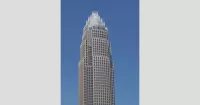
Bank of America is a multinational investment bank and financial...
California is a U S state on the Pacific Coast...
The National Broadcasting Company NBC is a major American commercial...
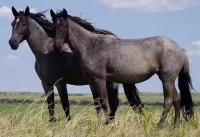
The horse scientifically known as Equus ferus caballus is a...
Israel is a country located in the Southern Levant region...
Trending
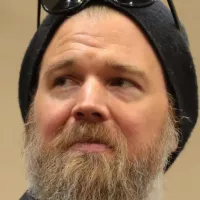
59 minutes ago Ryan Hurst's Kratos Revealed in Prime Video's 'God of War' Series: Cast Updates
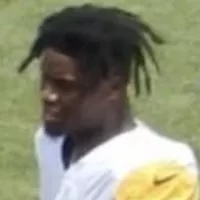
59 minutes ago Cowboys to Franchise Tag George Pickens for $28 Million: A Bold Move

59 minutes ago Rublev dominates Rinderknech, secures Dubai 2026 SFs spot; stats rival Djokovic, Federer.
19 hours ago Dell Projects AI Server Boom to Spur $50 Billion in Sales by 2027
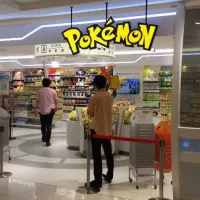
2 hours ago Official Pokémon LEGO Sets Launch Worldwide on Pokémon Day 2026!

2 hours ago Scream 7 Premiere Sees Protests After Melissa Barrera's Firing; Cast Reunites.
Popular

Jesse Jackson is an American civil rights activist politician and...

Barack Obama the th U S President - was the...

Susan Rice is an American diplomat and public official prominent...

XXXTentacion born Jahseh Dwayne Ricardo Onfroy was a controversial yet...

Michael Joseph Jackson the King of Pop was a highly...

Kashyap Pramod Patel is an American lawyer who became the...
